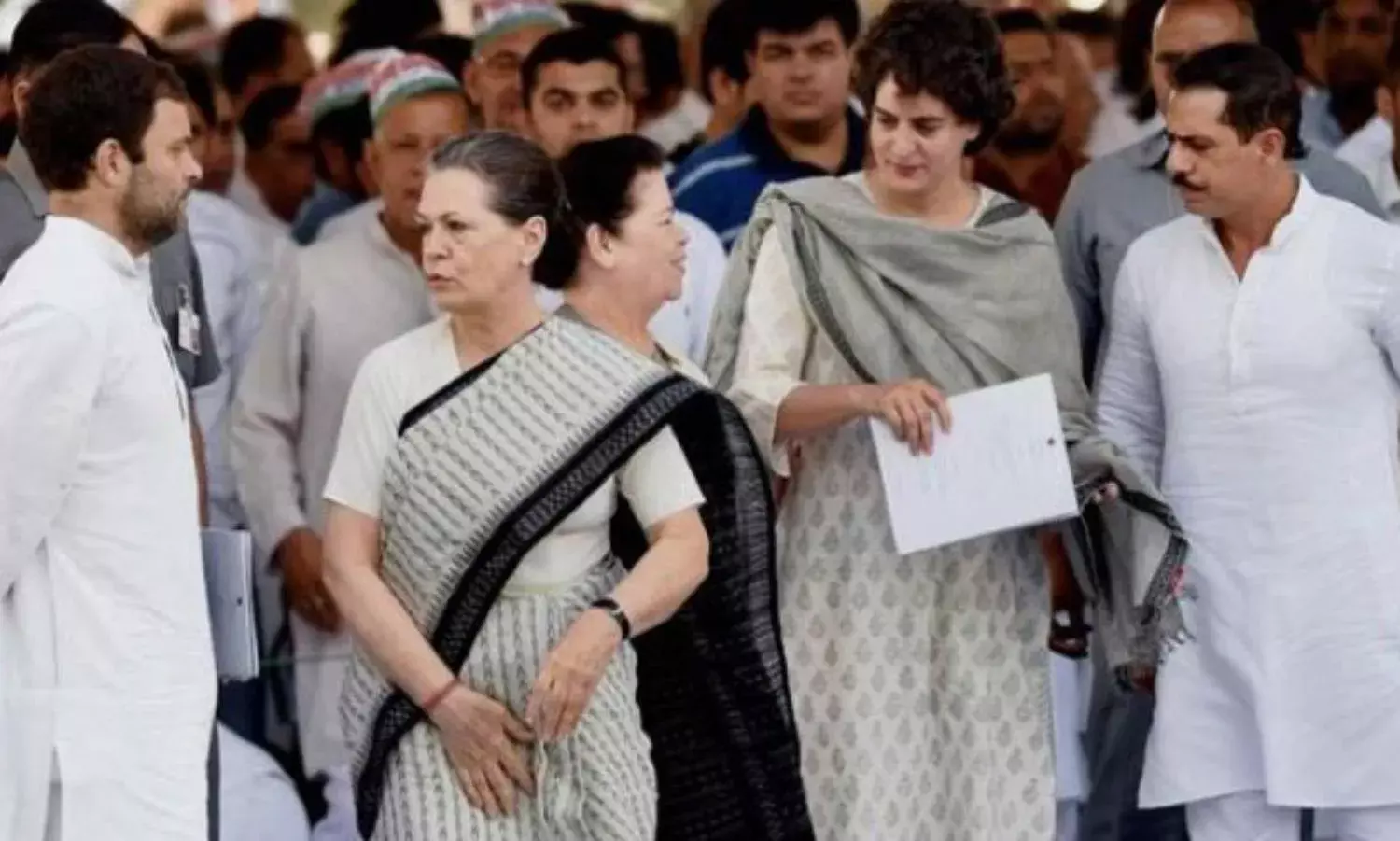Why Do We Suffer Dynasties in our Politics and Economy?
Democracy is easy to explain but difficult to practise: the opposite of capitalism

Priyanka Gandhi Vadra’s formal entry into the Congress party as general secretary will instantly wheel the media-mills to debate the credence of dynastic politics. Those practising it will remain in deep denial, and others will disparage it as nullifying the spirit of democracy. The BJP might make it one of their election planks.
But I think we have gone past the sterile debate on dynasty in Indian life and culture, as politicians across parties, up and down the country, are steeped in dynastic politics. Why blame politics alone, when even other sectors are happily and conveniently allowing dynasties to flourish?
Admittedly, the first dynasty in independent India’s politics was the Nehru-Gandhi family, which perhaps prompted and legitimised other dynasties across the country, from Kashmir (Abdullahs) to Tamil Nadu (Karunanidhis), and others like the Gowdas in Karnataka, the Badals in Punjab, Mulayam Yadav in UP, Lalu Yadav in Bihar, the Devi Lals in Haryana - the list goes on.
Beyond politics, even in the film industry, where looks and talent count, family members are promoted as actors, although some click and others do not. Dynasties also thrive in the business and corporate sector; these tend to be scrutinised less.
So, will it be electorally rewarding for the BJP to pick on just one family?
The Congress has brought in Priyanka Gandhi who is supposedly a bigger crowd-puller, with greater charisma and a closer resemblance to Indira Gandhi than her lacklustre brother Rahul.
In the forthcoming general election, where the Congress faces an existential crisis, drafting in Priyanka was the last weapon in the family’s armoury to leverage the dynastic appeal that has won them several elections, in addition to holding the party together.
The move will certainly rattle the BJP and they will fire on all cylinders to put the Congress on the defensive about Priyanka, picking on her husband Robert Vadra, an albatross around her neck if all the corruption cases against him are proceeded with.
To decode dynastic politics, let me throw just two points into the debate.
One, in the strict sense of the term, dynastic succession means the incumbent ruler nominating his or her successor to a position of power. So a dynastic party supremo can appoint a family member to a party position, but not as an MP or MLA, who then become ministers. People will still have to elect them in a regular election.
This brings me to the second point: that “in a democracy, you get the government (or rulers) you deserve”. In other words, like citizens, like ministers (dynastic or otherwise).
Of course, in a feudal and patriarchal society such as ours, the reverse is also true, and leaders also create their followers.
The moot point is, if people are democratically endorsing such nominations by electing them into legislatures, how can we decry the practice? Even if we do, it amounts to shedding crocodile tears.
Then, the dispassionate, non-party political, normative question is: how to transform the culture of dynasty into a modern, meritocratic, equal-opportunity democratic politics.
Frankly, the BJP’s jibes on Priyanka’s being elevated into the Congress leadership won’t hold water, as its own tall claim of being the party with a difference has fallen flat. They behave like any other in the rabid competition for power. They too have mini-dynasties in their party, although not in the top position. They admit defectors from other parties, from other ideologies, so their cachet of being an ideological party also has crumbled.
And worse, inconceivably, unlike even their bête noire the Congress, they take the spokespersons of other parties as their own spokespersons. One would expect a spokesperson to have been groomed in the party culture and imbued with its ideology over a period of time - one cannot embrace and imbibe an ideology and become its spokesperson overnight. I know of two BJP spokespersons who defended AAP and the Samajwadi Party just before switching loyalties.
So, if you want to throw stones at others, better not live in a glasshouse, an adage the BJP seems to forget.
That said, we must discourage dynasties in a democracy or in any other sector as such nepotism is unethical and unscrupulous. If the dynastic successors are bereft of formal competence and actual capability, they will become insufferable liabilities on the system.
We may not succeed in persuading power-mongering politicians to desist from dynastic practice, but we can prod people to be principle-loving. That would mean, the people who are the ultimate sovereign in a democracy will have to be sensitised, educated on the finer elements of democracy including principles, ethics, fairness etc.
Democracy allows each individual to aspire for political positions irrespective of their birth-status over which they have no control. It is only democracy that provides equal opportunity to all in public life, not only to those born with silver spoons in their mouths. Democracy is a great leveller, if it is pursued with the values that anchor it, or else it can be discriminatory and exclusive.
It is said that democracy is easy to explain but difficult to practise - unlike capitalism which is easy to follow but difficult to explain.
Let us decorate democracy, not the dynasty; adore it, but also treat it with respect and seriousness it deserves.



